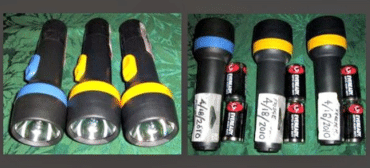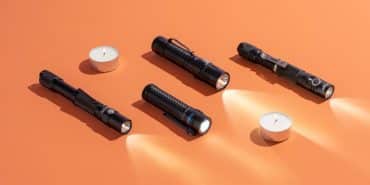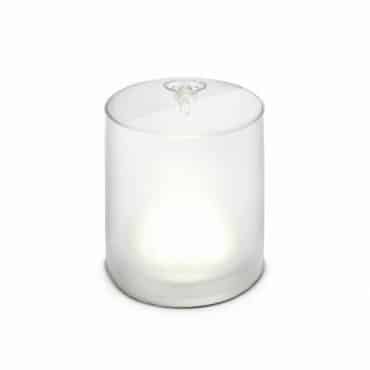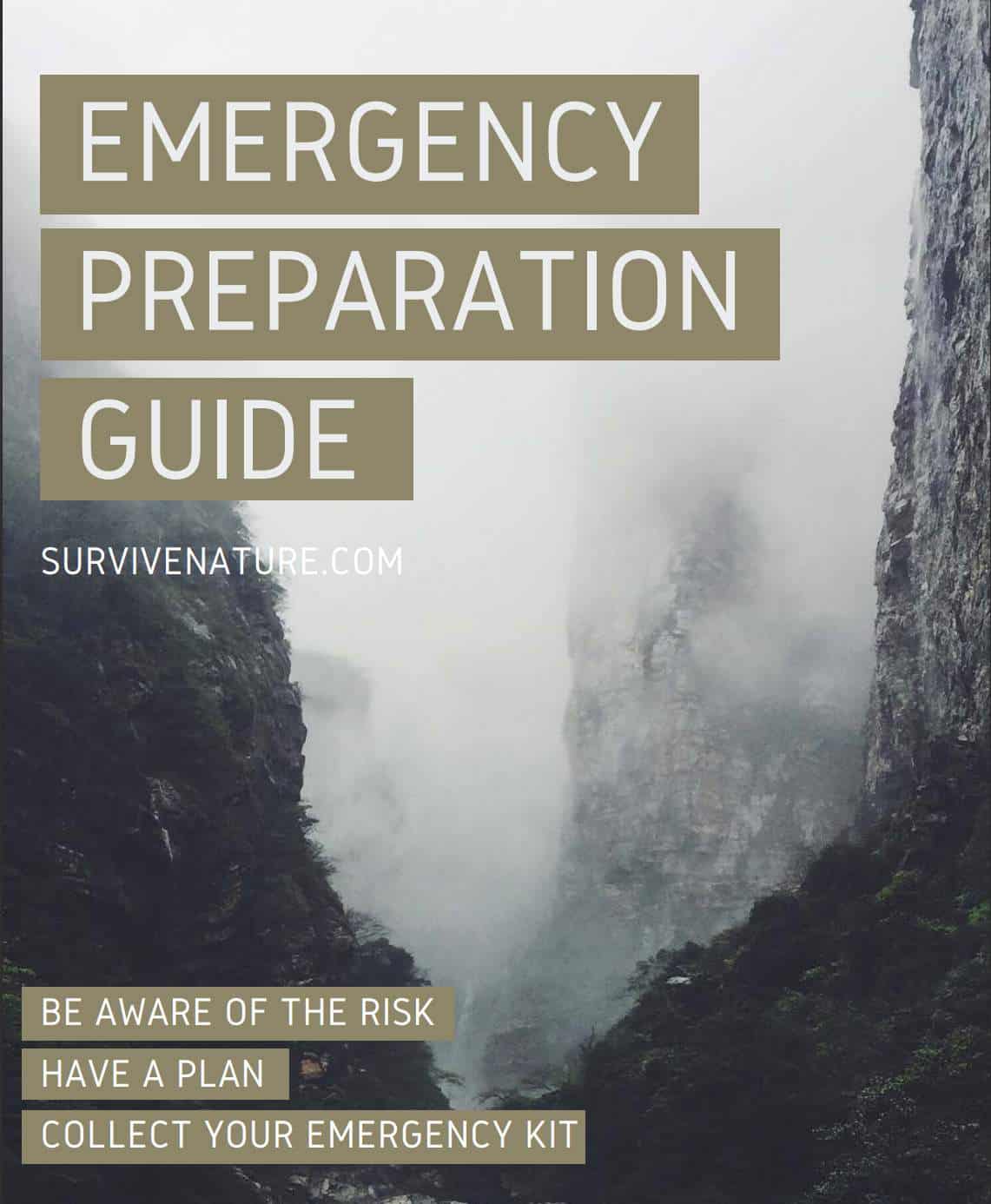There is no doubt, proper survival skills and meaningful hacks come in handy when it comes to an organized preparedness and survival. Another thing, your sustainable survival gear can simplify your life and increase your survival chances manifold.
There is absolutely no way to imagine a fully reliable survival backpack without a pack or two of batteries. Even with a tone of up-to-date survival sites like emergency LED torches, navigators, radio sets, etc., you will not be able to use any of those if your batteries fail you. It’s not enough to know what type and brand of batteries you should buy and how many of them you should stock up on. What really makes a difference is knowing how to store batteries while they are unused.
In this guide, we will give you helpful tips and ideas on how to store batteries properly. We will cover the topic of storing batteries in a fridge and whether it makes great sense or it is just an urban legend for preppers. We will also answer the question of are there any nuances in storing different types of batteries. And even more!
We will also experiment with testing the batteries that we stored using different battery storage options.
How to Store Batteries?
Storing batteries properly is a sure way to increase batteries shelf life. With prolonged battery life, you may rest assured that batts that you have in your emergency storage will serve you well when the time comes.
But how do you store batteries safely?
Choosing proper environment
The most common piece of advice that you may come across on the net is to store your batteries at room temperature – meaning the temperature must not be too hot or too cold. Most batteries don’t get along too well with extreme temperatures, both high and low:
- If you store your batteries at high temperatures for an extended period of time, you can permanently damage them. Another thing to take note of is that high temperatures may cause a safety hazard. So don’t store batteries near radiators, gas stoves, boilers, or in direct sunlight. This is something most battery manufacturers will advise.
- On the other hand, you have low temperatures that can also negatively affect your batteries. Let’s take your survival car battery (a sealed-lead acid battery type), for example. If you leave a car battery unused for a long time in the extreme cold, it will self-discharge. The same goes for other batteries as well. Just like a car battery, any battery will lose its capacity when stored at low temperatures.
So the best way of keeping the full capacity of your batteries when they are not in use is to store them at room temperature (cool temperatures will do as well, though).
There is also humidity that you will have to think about!
Not only lower or elevated temperatures will affect battery life, making your stockpile of unused batteries self-discharge, leak, or even explode. The high humidity level is also a great threat. If you keep batteries for an extended period of time in a space with high humidity, they will be losing capacity until they self-discharge fully. We will come back to this issue below but for now, say that an ideal long-term battery storage place is a dry environment that is not too hot and not too cold. Avoid storing your batteries in places that don’t satisfy these conditions.
But keeping batteries is not only about environmental factors. What also makes a difference is where exactly you put your household batteries.
Choosing a proper battery storage box
The first thing you should take care of is not to keep batteries in the same container with other metal objects. Keeping batteries next to other metal objects is not a great idea in the first place. And especially, you must not do so if you’re planning to arrange long-term storage for your batteries. For instance, some people carry loose batteries (most commonly AA/AAA batteries) in their pockets and store coins or paper clips. This is not good because metal objects may short circuit batteries.
A good idea would be to purchase a specialized battery storage box. There are plenty of them online. Such storage boxes vary in size so that you can use them for AAA or AA batteries only or larger types of batteries like Cs or Ds.
Another way to store batteries for a longer shelf-life is to put them in a plastic bag. You may also choose a Ziploc plastic bag (or some other vapor-proof container) to ensure that your batteries will be protected against humidity.
Best choice to keep batteries
If you have a few packs of new batteries, your best choice is to keep them in their original packaging. There are a few reasons for this:
- When you store new batteries in their original packaging, this will protect them from environmental conditions since battery packaging is designed to store batteries tightly sealed;
- Plus, stored in their original packaging, batteries will not get in contact with metal objects.
Such a simple measure will ensure longer battery life for new batteries until you need them.
But what about older batteries and used batteries?
First of all, what type of batteries are we talking about – non-rechargeable batteries or rechargeable ones?
- If you have a few older batteries that retained some capacity, don’t be quick to dispose of them. If those are alkaline batteries, you may run a simple check using a battery tester to determine how much capacity they still have left. And if those batts are still good to go, you may recharge them using a specialized charger for alkaline batteries.
- If you have a few older rechargeable batteries, your best choice is to fully recharge them and keep them in a separate container so you will not confuse them with single-use batteries.
A quick recap
To ensure longer shelf-life for your batteries, do the following:
- Make sure you store your batteries in a dry place at room temperature;
- Avoid storing batteries in too hot or too cold places;
- Keep new batteries unpacked;
- Store rechargeable batteries separately from other batteries in your storage;
- To store batteries safely, don’t keep them next to metallic objects.
When stored properly, batteries will not self-discharge, keeping the maximum of their capacity.
Is a Fridge a Good Place to Store Batteries?
It is not uncommon to come across a recommendation to store batteries in the refrigerator. Those who advise doing so believe that when you refrigerate batteries, you increase their shelflife. However, there is no reason to believe it’s true. In reality, if you choose to keep batteries in the refrigerator, you will most likely waste your time.
But what is the logic behind storing household batteries in the refrigerator?
The main reason why people think it makes any sense to refrigerate batteries (virtually all types of batts – Li-ion batteries, NiMh batteries, nickel-cadmium batteries, etc.) is that they believe that lower temperatures will slow down chemical processes inside a battery, thus resulting in lower capacity loss. Or, as some would say, refrigerating a battery can even stop it from losing its charge at all.
However, this may not be correct. Since every car owner knows has quickly car batteries die in winter. They last a lot longer during warmer weather. On the other hand, those who support refrigerating batteries insist that car batteries discharge from cold because of their type (they can be hotwired, anyway), which is sealed-lead-acid. Whereas lithium-ion batteries or NiMH batteries, for instance, should not be affected by the cold. Some will even go further by not just refrigerating by freezing their batteries using freezers.
In the next part of our guide on storing batteries, we will share our experience in testing refrigerated batteries and comparing their effectiveness to the batteries that we had stored at room temperature.
Storing batteries in a fridge
When homesteading, having proper situational awareness and reliable survival tools are of paramount importance. What you should consider when putting batteries into a fridge is proper packaging. If you’re storing new batteries, you may as well keep them in their original packaging. But for best results and safer storing conditions, your best choice is to use Ziploc bags. This will protect batteries from humidity.
Another thing you should take care of when using refrigerated batteries is to let them thaw. It will take a day or two.
This is important:
- Do not use refrigerated batteries straight out of a fridge.
The downsides of refrigerating batteries
Storing batteries in a fridge has one main downside you should know about – condensation hazard. If condensations occur while storing, it may ruin batteries. A battery affected by condensation will not last. Such a battery can leak, becoming completely useless. In fact, putting batteries into a fridge is not recommended by either battery manufacturers or experts. But still, many people insist on applying this method as 100% effective.
Testing the Batteries

The preparation part
First of all, we had a set of three LED flashlights of the same brand and model that we purchased at the same time to make the testing process as reliable as possible. Then, we purchased a set of D batteries. They were not the cheapest batts that would have died before you know it, neither were they expensive alkaline batteries—just regular carbon-zinc batts.
Then, we divided our batteries into couples – each couple for a specific storage location:
- One couple went to the fridge;
- Another couple went to the freezer;
- And the last couple went to the kitchen cupboard.
We had waited for a year and a half to proceed with the testing part.
The testing part
Sixteen months later, we took the batts out and let them thaw for a couple of days. Then we proceeded with testing. We inserted the batts into the previously marked flashlights. We switched the flashlights on and let them work non-stop.
The results
- All of the batteries performed perfectly well. They lasted for almost seven hours before running out;
- The “cupboard” batteries lasted as long as the fridge and freezer batteries. However, at some point, the “cupboard” batteries seemed to give less energy to the flashlight, so the light became a bit dimmer. Nevertheless, the running time of the batteries remained the same.
- The batteries that were stored in the fridge and the freezer did not show any sort of extraordinary performance. At some point, they managed to give more energy to their flashlights, but, in the end, they lasted as long as the batts that were stored in normal conditions.
The verdict
As popular as it may seem, refrigerating or freezing batteries is not the ultimate solution for extending batteries shelflife. In reality, refrigerated batteries perform just as batteries stored under moderate conditions.
Refrigerating Different Types of Batteries
Before we move on with the rest of our guide, we should note that you are free to perform your own experiments on refrigerating batteries using different battery types. Since we used only one type, it is legit to say that our experiment was not 100% flawless. There are different battery types out there, such as Lithium-ion batteries, NiMh batteries, alkaline batteries. Each of the types may have a different response to refrigeration in terms of shelflife. Here are some ideas on what you could pay attention to when testing these battery types:
Alkaline batteries
- Will refrigerating affect these batteries positively? Why not compare a rechargeable battery to a non-rechargeable one?
Nickel batteries
- Traditionally, NiCad and NiMH batteries are rechargeables. This means that an experiment could focus on how long these batteries will last under various storing conditions.
Lithium-ion batteries
- Li-ion batteries are also rechargeable ones. So when testing lithium-ion batteries trying different storage approaches, you may see if their longevity is affected by refrigerating/freezing or not.
Tips on How to Store Batteries
We’re almost through with our guide. Before we move on with the fail part, where we will list our favorite batteries and related equipment, let’s do a quick recap on how to store batteries properly to ensure that you have yourself back up.
Conditions
- Store batteries under normal room temperatures;
- Avoid too hot spaces due to fire risk;
- Don’t store batteries in refrigerators/freezers;
- Don’t keep batteries under direct sunlight;
- Avoid spaces with a high humidity level;
- Choose dry and dim spaces.
Containing
- If possible, use specialized battery storage boxes – there are different size items for AAA/AA batteries, Cs, Ds, etc.);
- Don’t store batteries next to other metallic objects;
- Separate rechargeable batteries from non-rechargeables;
- All the positive ends should face the same direction;
- Opposing ends must not contact one another;
- Cover battery ends with plastic caps (if possible).
Managing
- Don’t throw away used batteries in the trash – if you have a dead phone or radio battery, for instance; you may exchange it for a new one;
- If you have a few old button cell batteries – recycle them. Do your research on where to call for more information on battery recycling;
- Single-use alkaline batteries can be recharged via a specialized battery charger;
- Li-ion batteries tend to fall into a so-called sleep mode making it impossible to recharge them. That is why for best results, it is recommended to use a charger with a “boost” option.
- When buying new batteries, look for low self-discharge ones (for instance, nickel-metal hydride batteries).
Shelflife info
- Nickel-zinc – 1 year;
- Carbon Zinc / Zinc Chloride – 2-3 years;
- Rechargeable Alkalines – 4-7 years;
- NiCad / NiMH – 5 years;
- Single-use Alkalines – 10 years;
- Li-Ion – 7-15 years.
Products That We Advise
Batteries
Panasonic Eneloop Rechargeable Batteries
- Lasting NiMH batteries that are hard to match.
Amprobe BAT-250 Battery Tester
- A must-have for every one concert in proper storing and managing their battery stock.
Flashlights
BYBLight XML-T6

- A five-light mode LED flashlight. Boasts a heavy-duty aluminum body combined. Extremely lightweight.
Cyalume Light Sticks (or glow sticks)
- There is no way you can arrange a reliable survival kit without glow sticks. If you’re confused by a wide choice of them, try light sticks by Cyalume. Each item from the set will give you up to twelve hours of light. That is some result, right?
Inflatable Solar Lantern by MPOWERD Luci EMRG

- A water-resistant, lightweight LED lantern that uses solar power and has enough charge to work for six hours non-stop.
Conclusion
When choosing the best place to store your batteries, you can’t go wrong with a good-old cupboard or a shelf in your garage. There is nothing fancy in keeping your batteries properly stored, really. Just make sure they are dry and cool.
Frequently Asked Questions (FAQ)
What is the best way to store batteries?
The best way to store batteries is to keep them somewhere dry and cool. Your best option is to avoid hot and cold places since these conditions will cause self-discharge and may even harm your batteries.
Is it OK to put batteries in a Ziploc bag?
The best choice is to keep batteries in their original packaging. However, if you have none, a Ziploc bag will do. It will protect batteries from external moisture and contacting other objects.
Do batteries last longer if refrigerated?
As practice shows, refrigerating batteries does not affect them in any way. Although, battery manufactures would not recommend keeping their products in fridges and freezers at all.
How do you store batteries when not in use?
The best battery storage option is a dry and dim place. Batteries should not touch metallic objects, nor should they not contact each other with opposing ends. It is also a good idea to store rechargeables and non-rechargeables separately.


